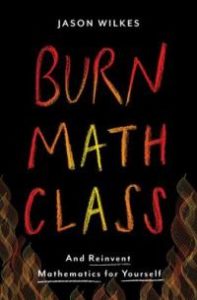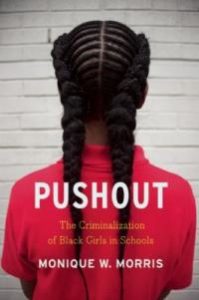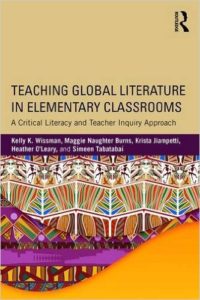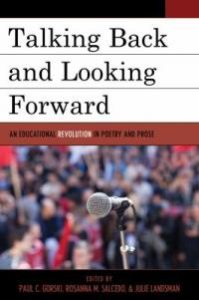There are a host of exciting new titles available at the OISE Library this February!
 Burn Math Class and Reinvent Mathematics for Yourself, 2016, Jason Wilkes
Burn Math Class and Reinvent Mathematics for Yourself, 2016, Jason Wilkes
Forget everything you know about math. With this innovative book, Wilkes upends the way we view mathematics and the teaching and learning thereof. From the first page, Wilkes talks about math in plain English. Instead of thinking about “formulas” or “equations,” it’s more useful to think about “sentences.” x is just code for “stuff.” Wilkes starts by walking the reader through what he calls “pre-mathematics” – the ideas, questions, and motivations that drive the development of mathematical concepts in the first place. From there, he jumps straight into calculus and works backwards through topics typically considered to be necessary prerequisites. Wilkes throws the rules out the window and guides the reader through a process of building mathematical understanding from the ground up, in entirely unconventional ways. This isn’t a math textbook, it’s a way of thinking about math: the goal of this book is not to teach you math, but to guide you in the process of creating it. In Wilkes’ words, “mathematics has been stolen from us, and it is time we take it back.”
 Pushout: The Criminalization of Black Girls in Schools, 2016, Monique W. Morris
Pushout: The Criminalization of Black Girls in Schools, 2016, Monique W. Morris
Black girls are exceedingly targeted by punitive school discipline, being suspended, expelled, and arrested at alarmingly high numbers for minor infractions; Morris argues that Black girls are an oft overlooked side of the school-to-prison pipeline. This book is the result of a multi-year study during which Morris talked with Black girls across the United States, documenting their experiences. She found, for example, that Black girls often do not develop a meaningful relationship with schools, a factor which is exacerbated by schools’ increasing reliance on exclusionary discipline. The result: Black girls are being pushed out of schools. The chapters of this book explore such topics as how societal narratives affect Black girls’ school performance, how Black girls are disproportionately subject to punitive discipline, how policy affects Black girls’ identities, and how Black girls can be supported in school. The book concludes with a Q&A chapter addressing questions received from Black girls, parents, and advocates, as well as a discussion of alternatives to punitive discipline.
 Teaching Global Literature in Elementary Classrooms: A Critical Literacy and Teacher Inquiry Approach, 2016, Kelly K. Wissman, Maggie Naughter Burns, Krista Jiampetti, Heather O’Leary, and Simeen Tabatabai
Teaching Global Literature in Elementary Classrooms: A Critical Literacy and Teacher Inquiry Approach, 2016, Kelly K. Wissman, Maggie Naughter Burns, Krista Jiampetti, Heather O’Leary, and Simeen Tabatabai
Global literature is one means of building a deep, affective understanding of global cultures. In our increasingly globalized world, building an understanding of other cultures and worldviews is no longer optional. This book is directed at teachers interested in how global literature can be used to broaden students’ horizons, foster classroom inquiry, and make a difference in the world. The use of global literature is equally a response to the lack of diversity in the texts recommended by the Common Core curriculum. This book provides suggestions for books to bring into the elementary classroom accompanied by an explanation of why each book is a useful resource to help children think critically about local and global issues. The chapters of this book blend theoretical frameworks and research with teachers’ experiences using global literature, providing examples of how readers in different environments responded to global books. Each chapter includes transcripts of classroom discussions, student writing, and teacher reflections. This book doesn’t only show the successes – the chapters also discuss the disappointments, false starts, and failures, not only presenting a well-rounded view of the experience but offering suggestions of how to respond to set-backs.
 Generation on a Tightrope: A Portrait of Today’s College Student, 2012, Arthur Levine and Diane R. Dean
Generation on a Tightrope: A Portrait of Today’s College Student, 2012, Arthur Levine and Diane R. Dean
Following in the footsteps of two of Levine’s earlier books studying college and university students (one looking at students in the 1970s, the other at students in the 1990s), this book examines today’s college student in a study that was conducted over five years from 2006 to 2011. This book looks to paint a multifaceted picture of students who are living in a world that is now well into the transition from analogue to digital. While today’s students have a lot in common with their parents, they also face unique challenges: for example, they are simultaneously more connected and more isolated than ever before, are facing the worst economy in recent memory, and are dealing with a world that is changing at an ever-accelerating rate. The chapters of this book address a range of areas including but not limited to: what academics look like today, the involvement of parents in their children’s lives, multiculturalism and diversity on college campuses, and student views of the future. Levine and Dean argue that the future depends on how well today’s college students are prepared to meet the challenges ahead and suggest ways to better shape and collaborate with the next generation.
 Talking Back and Looking Forward: An Educational Revolution in Poetry and Prose, 2016, eds. Paul C. Gorski, Rosanna M. Salcedo, and Julie Landsman
Talking Back and Looking Forward: An Educational Revolution in Poetry and Prose, 2016, eds. Paul C. Gorski, Rosanna M. Salcedo, and Julie Landsman
Tied together by a commitment to political transformation and social justice, this volume explores the ways that teachers support children through creative expression. Both art and education are presented as transformational and can be used to respond to oppression. The contributors to this volume were chosen to highlight the voices of teachers who have witnessed educational injustice on the lives of marginalized youth and the ways in which they have advocated for their students. The chapters of this book explore ideas such as the power of everyday life, the tyranny of standardization, decolonization and resistance, and the use of language and creativity as weapons for struggle. These are not, however, your typical academic chapters. The chapters are presented in the form of poems, stories, personal essays, visual art, and comics – the very types of creative expression that this book argues should be used to support students.
You can find these and other new additions to the library’s collections on the “New Arrivals” shelf, located near the reference desk on the ground floor of the OISE Library.
